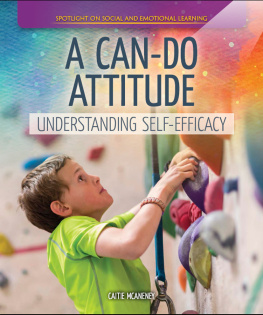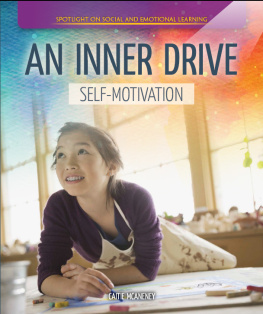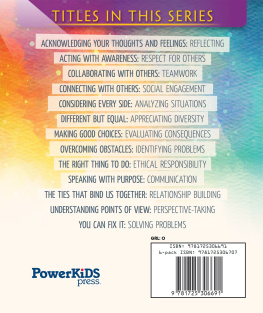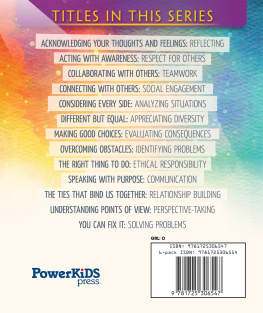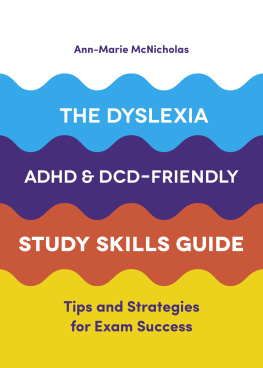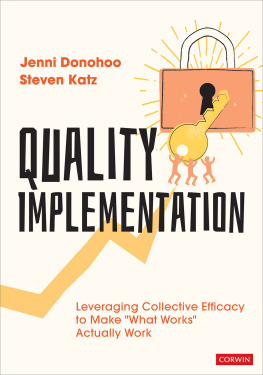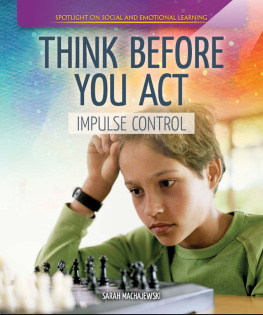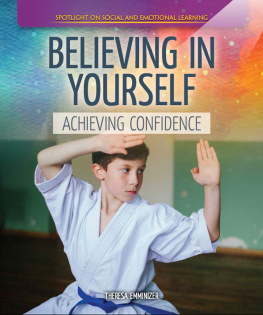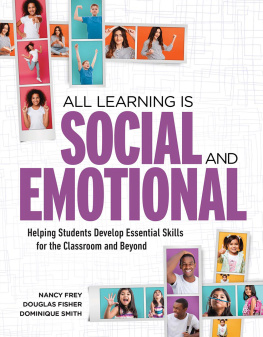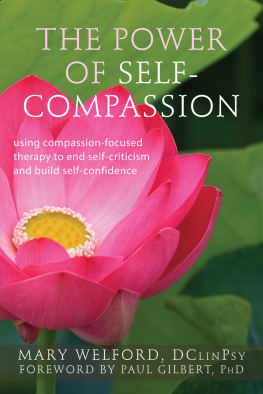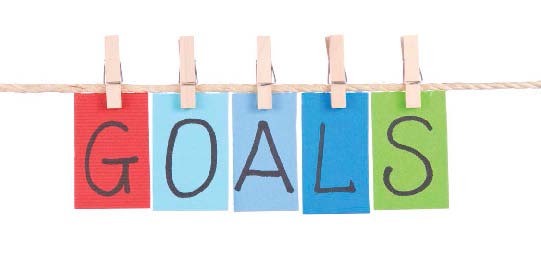Published in 2020 by The Rosen Publishing Group, Inc. 29 East 21st Street, New York, NY 10010
Copyright 2020 by The Rosen Publishing Group, Inc.
All rights reserved. No part of this book may be reproduced in any form without permission in writing from the publisher, except by a reviewer.
Editor: Elizabeth Krajnik
Designer: Michael Flynn
Photo Credits: Cover Marc Romanelli/Blend Images/Getty Images; cover, pp. 1, 34, 6, 8, 1012, 1416, 1820, 2224 (background) TairA/Shutterstock.com; p. 5 Kyodo News/Getty Images; p. 6 Anson0618/Shutterstock.com; p. 7 Elena Elisseeva/Shutterstock.com; p. 9 JGI/Jamie Grill/Blend Images/Getty Images; p. 10 Africa Studio/ Shutterstock.com; p. 11 VGstockstudio/Shutterstock.com; p. 13 Dmytro Vietrov/Shutterstock.com; p. 14 https://en.wikipedia.org/wiki/File:VanGogh-starry_night_ballance1.jpg; p. 15 Solis Images/Shutterstock.com; p. 17 Central Press/Hulton Archive/Getty Images; p. 18 My Life Graphic/Shutterstock.com; p. 19 Lucky Business/Shutterstock.com; p. 21 Patrick Smith/Getty Images Sport/Getty Images; p. 22 pathdoc/Shutterstock.com.
Cataloging-in-Publication Data
Names: McAneney, Caitie.
Title: A can-do attitude: understanding self-efficacy / Caitie McAneney.
Description: New York : PowerKids Press, 2020. | Series: Spotlight on social and emotional learning | Includes glossary and index.
Identifiers: ISBN 9781725301931 (pbk.) | ISBN 9781725301962 (library bound) | ISBN 9781725301948 (6pack)
Subjects: LCSH: Self-efficacy--Juvenile literature. | Self-esteem--Juvenile literature. | Goal (Psychology)--Juvenile literature.
Classification: LCC BF637.S38 M39 2020 | DDC 158.1--dc23
Manufactured in the United States of America
CPSIA Compliance Information: Batch #CSPK19. For further information contact Rosen Publishing, New York, New York at 1-800-237-9932.
CHAPTER one
BELIEVE IN YOURSELF!
Have you ever wanted to do something really difficult? Maybe you wanted to learn how to do a cartwheel or solve a hard math problem or beat the next level on a video game. All of these things take practice and hard work. However, they also take a belief in your own ability. Thats called self-efficacy.
Self-efficacy is the belief that you have the ability to succeed at a task or achieve a goal. When you believe in yourself, youre more likely to approach challenges in a different way than someone who doesnt believe in their abilities. You might work harder, overcome challenges, and be an active participant in the activity. Self-efficacy is all about control and confidence. You believe that you can control your actions and attitude. You have confidence that you can do anything you set your mind to. If you believe in yourself, you cant lose!

Simone Biles won four gold medals in womens artistic gymnastics at the 2016 Summer Olympics in Rio de Janeiro, Brazil. Without self-efficacy, Biles might not have trained so hard or had the confidence to fly through the air and stick the landing.
CHAPTER two
WHATS YOUR GOAL?
If youre good at something, its easy to have selfefficacy. A gymnast who has trained for years will believe they can land a cartwheel with no problem. A chef will believe they can cook a great meal. However, this belief has come with years of hard work and persistence.
No one is good at everything. And no one is great at anything on the first try. That means many activities are challenges to overcome. The first step in achieving a certain outcome is defining your goal.
What goal do you want to achieve? It can be a goal for your schoolwork. For example, you might want to get a good grade on your science project. It can be a social goal, such as joining a new club or community center. It can relate to an extracurricular activity, such as scoring a goal in soccer.
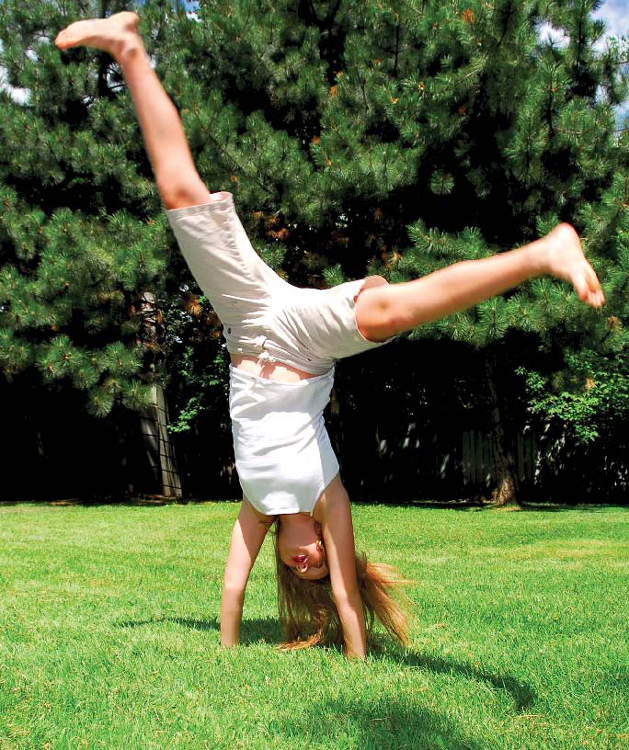
Setting a goal is like defining a problem. Thats the first step in problem solving!
CHAPTER three
SELF-AWARENESS
Having self-efficacy is just one part of being selfaware. To be aware is to have knowledge of something. To be self-aware is to have knowledge of yourself.
Have you ever seen the movie Inside Out? That movie shows how each person is made up of many complex emotions. You are also made up of your thoughtsincluding your opinions and judgments and your values, or the things that are important to you.
You are a one-of-a-kind human being! And you have the ability to be an expert on yourself by being self-aware. This skill helps you define your emotions, thoughts, and values and assess your strengths and abilities. This helps you recognize your mindset when faced with a challenge. It can also tell you where you are in the process of achieving your goal and how you can achieve it in time.

Self-awareness skills include defining emotions, having self-confidence, and knowing your strengths.
CHAPTER four
UNDERSTAND YOUR STRENGTHS
Knowing your strengths is one part of selfawareness. Some students are better at writing than they are at math. However, other students may be better at math than they are at writing. When we know our strengths, we can use them to achieve our goals.
First, write down a list of your strengths. What are you good at? What comes easily to you? What have you already worked on? You might be good at playing a sport, such as soccer or basketball. You might have a social strength, such as being a good listener or being respectful of others.
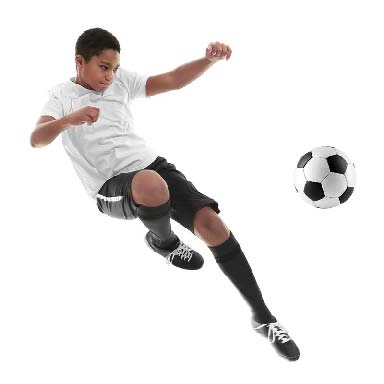
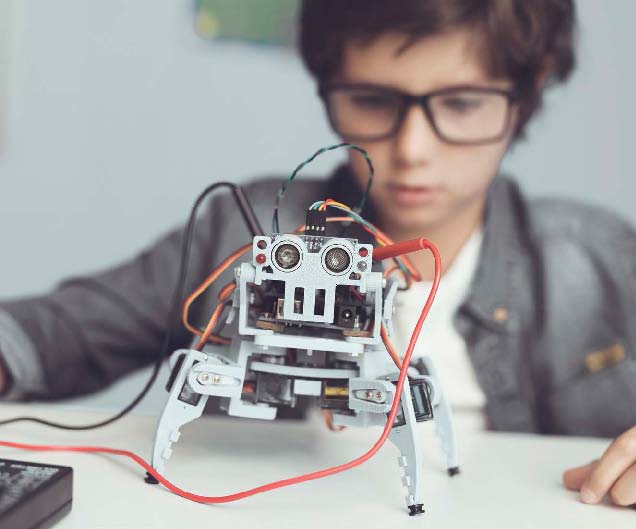
You must also know your limitations, or what you cant do. If you dont know how to program a robot, then you know youll need to work extrahard to get better at coding.
How do you know what your strengths are? Think about the things people have praised you for in the past or the outcome of a past challenge. If you got an A on a computer programming assignment, coding might be one of your strengths.
CHAPTER five
THE RIGHT ATTITUDE
Self-efficacy is all about approaching a challenge with the right attitude. If you think you can do something, then youll work toward your goal with confidence. Self-confidence is the belief that you will succeed. People who are confident in their abilities are excited to work toward a goal. That attitude leads to motivation.
Motivation means that you have a desire, or want, to do something. If you have motivation, then youre driven toward accomplishing a task or reaching a goal. But what if you dont have motivation to work toward something? Imagine youre trying to learn piano, but you dont want to practice. Think about why you want to learn to play piano. Make a list of small goals you can achieve on your way to being a great pianist. Stay positive about practicing and remember: if you have the right attitude, you can do anything!

